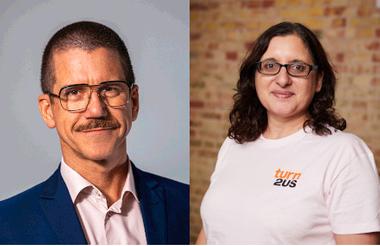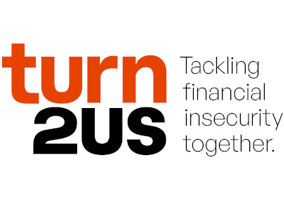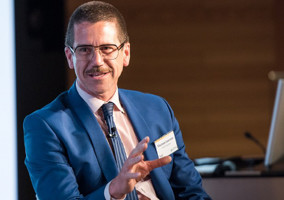The national anti-poverty charity Turn2us has conducted reviews of two of its services to determine their equitability.
When asked why they reviewed the grants through an equity, diversity and inclusion (EDI) lens, CEO Thomas Lawson said that because society has inequalities within it, civil society can replicate them within their organisations without meaning to.
He said: “If our sector is recreating some of those barriers and some of that oppression, then we’re not in a position to tackle those problems – we don’t have the credibility or authority to tell society to be better. So, our sector as a whole has to hold itself to account for its patriarchal oppression, its racist oppression, its homophobic and queerphobic oppression.”
Lawson went on to say that it is statistically more likely for people of colour to experience financial hardship and barriers to the economy, so it was vital that the charity evaluated whether it was reaching them.
He said: “If Turn2us is not facing into the dynamics within its own organisation then we do not – and I do not – have the credibility to have this job. So, it has to hold itself to account for the people for whom we exist.”
People from minoritised groups were less likely to receive a grant from Turn2us
Turn2us reviewed its Elizabeth Finn Fund (EFF), which can provide grants of £1,000 - £2,500 to people experiencing financial hardship. It found applicants from minoritised ethnic groups were less likely to receive a grant.
Therefore, the purpose of its evaluation was to determine why white applicants had been more likely to receive grants than Black and Asian ones and discover the experience of people from these groups.
Turn2us contacted 147 applicants who were refused a grant between 2019 and 2021. This resulted in nine interviews and 27 survey responses.
Over half of the applicants interviewed felt there was conscious or unconscious bias at play in their interactions with the charity. Some respondents highlighted that they felt a power imbalance reminiscent of the benefits system.
In response to the findings, the charity has temporarily closed the EFF to undertake a thorough redesign of it in partnership with people who have lived experience of financial insecurity.
‘I don’t think some of us were very surprised’
Sonya Ruparel, director of programmes and partnerships at Turn2us, told Civil Society News the results of the findings did not come as a huge shock to some people at the charity.
“I don’t think some of us were very surprised. But I think we needed the evidence to make the changes,” she said. It made her very glad Turn2us conducted the evaluation, she added.
She said: “It’s really important that we know that, and that we now address that.”
Lawson added that the EFF was a very old funding structure that had not been looked at for some time. To the best of his knowledge, this is the first time the grantmaking programme has been evaluated through an EDI lens.
‘I felt accountable’
Lawson said it was difficult to discover “we were causing harm to people of colour when they were applying for our grants”.
He continued: “Personally, I felt accountable. I’m the chief executive, I’m accountable for the harm that this organisation has caused under my watch and that feeling is why I have a responsibility as a chief executive to support the organisation to address it.”
But overall, Lawson said, “it’s irrelevant if we felt any of those difficult feelings, because the people for whom the organisation exist were experiencing harm – and my feelings in the face of that are irrelevant.”
What next for the EFF?
Ruparel said the charity is doing a deep review of the EFF fund with co-production partners. It is set to relaunch later this year.
She said: “We are redesigning our approach to grants entirely and taking the opportunity to really deeply see how we can put people’s dignity and decision-making more at the heart of how we make grants in the future.”
She emphasised that Turn2us is not stopping helping people in the meantime, but grant programmes currently available are more short-term.
Grants Search Tool
Turn2us also conducted an independent review of its Grants Search Tool, which allows people in financial hardship to identify funds they can apply to.
The Social Investment Consultancy (TSIC) assessed the tool through a racial equity lens and identified the changes required to ensure it is not contributing to racial inequity.
This review was prompted by data from Turn2us discovered in 2020 which found people from minoritised groups were underrepresented in the tool. Subsequently, the charity worked to identify barriers that stopped people from those communities using it.
The findings were from TSIC’s desk review, two workshops, two interviews with experts on digital products and seven user research interviews with people from minoritised ethnic communities.
TSIC identified concerns that the tool was exhibiting systemic, institutional and interpersonal racism. For example, systemic racism was demonstrated via funding gaps for ethnic minorities while a facet of interpersonal racism was English being the only available language to access information.
It was also discovered that the grant tool could be recreating institutional racism due to their being a long-held perception that Turn2us was a middle-class and politically conservative organisation.
While the Grants Search Tool remains open to use, the charity is now working on bringing the TSIC’s recommendations to life to make it a more equitable service.
Civil society must address its conservative heritage
When asked about where this perception of Turn2us being middle-class and conservative might come from, Lawson detailed how the civil society sector grew up out of the industrial revolution, which created an extraordinary disparity of wealth where a richer group of people could help those less fortunate.
Though this is well-meaning, “at the heart of that was an othering”, he said.
It suggests: “Here, we’re wise and wealthy – let us help you. So, our sector, big chunks of our sector, have that heritage and so we need to address that heritage and that’s what we’re doing.”
In this way, “civil society upholds oppression”, Lawson said. “So, lets fix it.”
Ruparel agreed that institutional racism is still apparent in civil society.
She said: “Especially when I joined, our staff team was very white. We have been addressing that in the last three years, but when I came in, I was quite surprised at how white it was and I think that also tells a story that maybe perhaps people feel that we don’t exist to support them because of who we are – and we are trying to address that.”
Ruparel said they are trying to do this not only through their equity reviews, but through increasing more representation on the board and within the Turn2us team.
In terms of diversity, “we have a way to go – just like many organisations”, Lawson added.
‘We are complicit if we don’t tackle it’
Ruparel said: “We have been on this journey of really trying to understand how we could, in future, become anti-racist and part of that was looking at that tool and actually going how can we look at it through an equity lens? So, we hadn’t previously identified a problem, but unearthed that actually there are issues within it that we can now address when we rebuild it.”
Both professionals emphasised that not being racist as an organisation is not enough, and that organisations must strive to become anti-racist.
Lawson explained: “Just not being racist condones racism. If you’re simply passively not being racist, ultimately, you’re being racist because you’re condoning it and as a white ally then I’m contributing to it. If I don’t speak out when I see it or feel it or hear it then I’m complicit and that is true for the organisation. We are complicit if we don’t tackle it.”
Ruparel added: “If we are not supporting people affected by social injustice and tackling social injustice in the work that we do, we’re buying into a system that is creating those injustices and we need to challenge that system. We cannot be part of it.
“We are thinking very hard about how can we support people through our work to tackle those systems of injustice. It feels critical that that’s what we do and we work with other organisations that are doing that as well.”
‘We are learning in the open’
Lawson emphasised that by Turn2us publishing its findings it is learning in the open, which is the right thing to do.
He said though it might be tempting for organisations to discover this information and figure out what to do behind the scenes, that this is not acceptable.
He said: “That is us holding onto power, that is us protecting ourselves instead of being accountable to the people for whom we exist. We will probably as we learn in the open, misstep.”
"By learning in the open we are inviting people to hold us to account," Lawson said.
What next?
Ruparel said that the charity will now be looking to examine more of its services through a similar lens.
She said: “We imagine we will be looking at our other services, products and programmes as well. As we look to update, redesign – we have another big digital product, the benefits calculator, which we’ll be looking at.”
Lawson added that Turn2us aims to “make sure EDI lens is alive in annual reports and comms, and is at the heart of how we communicate with the world”.
Turn2us is also designing its new strategy, which will go live on 1 April 2023.
Lawson said: “If Turn2us, by being vulnerable and learning in the open has an impact on other grantmakers – that is a good thing.”
Lawson and Ruparel urged other charities to also examine their organisations through an equity lens.
“Let’s learn together,” Lawson said.
Related articles












